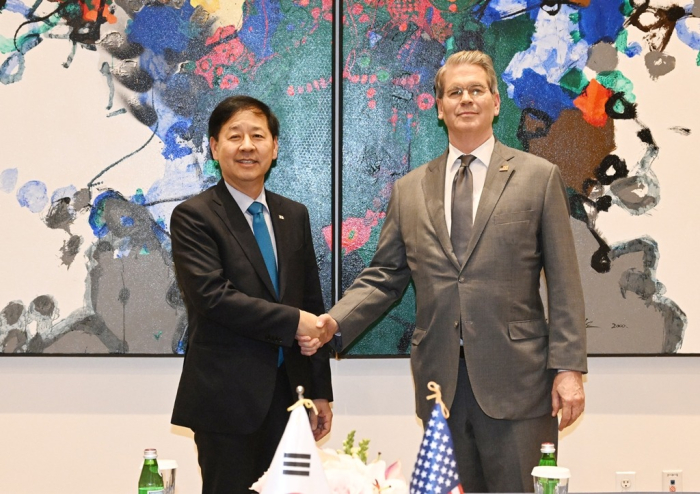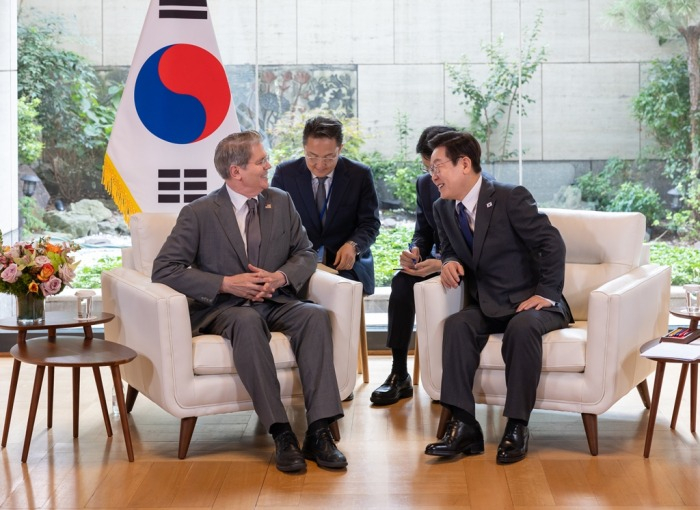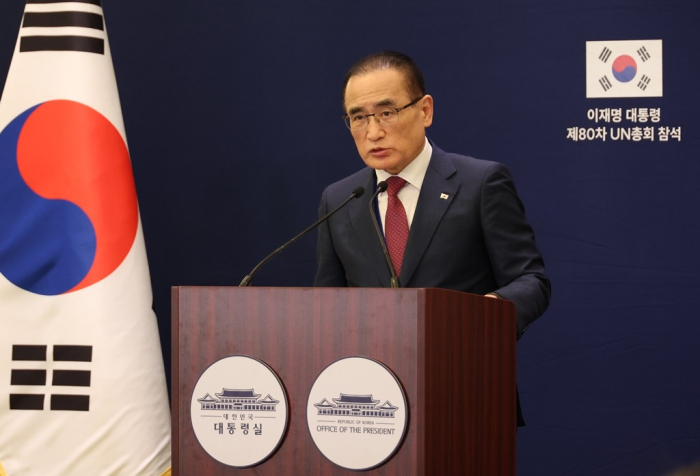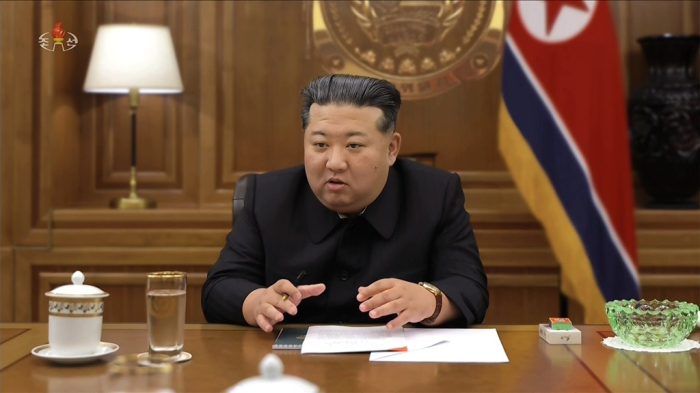
South Korea’s finance minister said on Saturday the country has reached a foreign exchange deal with the US, raising hopes for support on the won currency while still awaiting Washington’s response on an unlimited bilateral currency swap line proposed by Seoul.
“Talks with the U.S. on the foreign exchange deal have been concluded and we plan to announce the details soon,” said Koo Yoon-cheol, deputy prime minister and finance minister.
“We have provided sufficient explanation to the US and are currently awaiting a response,” Koo told reporters when asked about a currency swap facility at Incheon International Airport after returning from a trip to the US.
South Korean President Lee Jae Myung urged Washington to pursue tariff negotiations on a “commercially rational” basis during a meeting in New York with Treasury Secretary Scott Bessent on Wednesday, while reiterating Seoul’s request for a bilateral currency swap line.
The South Korean won on Friday slid to 1,414 against the dollar, the weakest since May 14, rattled by a resurgent greenback and rising unease over Washington’s insistence that Seoul deliver a $350 billion investment package “up front,” according to Bank of Korea data.
South Korean government officials have warned that such an arrangement would impose significant foreign exchange risks and have called for an unlimited bilateral currency swap as part of any final agreement to protect the local financial market.
Seoul requested such a currency swap line, given concerns that the $350 investment fund could cause massive capital outflows, resulting in an economic catastrophe, which is similar to the 1997-98 Asian Financial Crisis.
Koo hoped the US government would consider such conditions.
“Bessent is fully aware of our foreign exchange situation,” Koo said when asked if a currency swap deal could fall through. “I mentioned several key points and I believe they will take those into consideration.”

HAVE NOT HEARD THAT US ASKS KOREA TO PAY MORE
Koo denied a report that the US has urged Seoul to increase the headline figure above the $350 billion.
US Commerce Secretary Howard Lutnick told Korean officials in private that Washington wanted a larger share of the package to be delivered in cash rather than credit and hinted that Seoul’s contribution should move closer to Japan’s $550 billion commitment, the Wall Street Journal reported on Sept. 25.
“I have not heard of anything like that,” Koo said.
NOT TO PAY $350 BILLION UP FRONT
South Korean National Security Adviser Wi Sung-lac on Saturday reiterated that the country will not pay $350 billion up front.
“We cannot pay $350 billion in cash,” Wi said in an interview with a local TV when asked about US President Donald Trump’s comment that South Korea’s pledge to invest $350 billion in the US under a bilateral trade accord must be paid “up front,”

“It is not a negotiation tactic. It’s simply an objective and realistic matter that is beyond our capacity,” Wi said. “Since no one can accept it, we are working on presenting alternatives and negotiating those options.”
Wi said the meeting between Lee and Bessent did not make significant progress for a deal, although the gathering will be helpful in the negotiations going forward.
Seoul hopes to find a breakthrough for a deal in the next Korea-US summit, Wi said. South Korea is scheduled to host the Asia-Pacific Economic Cooperation (APEC) summit, which Trump plans to attend, in the historic city of Gyeongju Oct. 31–Nov. 1.
“One potential target date for the tariff negotiations could be the upcoming Korea-U.S. summit,” Wi said. “We are aiming for the Asia-Pacific Economic Cooperation (APEC) summit in Gyeongju.”
TRUMP AND KIM UNLIKELY TO MEET IN APEC SUMMIT
Wi doubted if Trump and North Korean leader Kim Jong Un would meet during the event.
“Rather than saying it is possible, I would say it remains in the realm of imagination at this point. There are no signs or indicators suggesting such a meeting is likely.”

South Korea has never abandoned denuclearization of the North, Wi said.
“We have never abandoned, nor do we intend to abandon, denuclearization,” he said when asked about the opposition criticism that Lee implies abandoning denuclearization.
“The President takes the North Korean nuclear issue very seriously,” Wi said, quoting Lee as saying, “If things continue this way, North Korea will be adding 15 to 20 nuclear weapons every year — can we just stand by and watch this unfold?”
Wi said Lee did not mean to weaken the alliance with the US when he criticized beliefs that independent defense is impossible without foreign troops.
“While the alliance and cooperation with the United States remain important, this signifies our intention to play a greater role in fulfilling our responsibilities regarding conventional forces,” Wi said.
By Ik-Hwan Kim
lovepen@hankyung.com
Jongwoo Cheon edited this article.















